Fiji
MCRI has developed a long and productive research collaboration with Fiji to work towards understanding how scabies affects the Fijian population. This successful collaboration in research has been translated into a working relationship with the implementation of the World Scabies Program to eliminate scabies as a national public health problem throughout the country.
Scabies is highly prevalent throughout Fiji, in 2007 a national prevalence survey found 23% of Fijians has scabies at any given time. Moreover, scabies disproportionately affects children with 45% of children aged 5-9 years old, almost one in every two children, being affected by the disease. In 2016, the Fiji Government released its annual Health Status Report revealing skin and soft tissue infections (SSTIs) to be the fifth most common cause of mortality within the country.
WSP works in close collaboration with the Ministry of Health through the Fijian Centre of Disease Control, P.J. Towmey Hospital and all Divisional Health Teams to implement mass drug administration to eliminate the spread of scabies throughout communities. The program works towards the establishment of a long-term program within the Ministry of Health by strengthening health system capacity to adequately monitor and manage scabies. Additionally, MCRI will work closely with the Fiji WSP Country Team to engage the community and support community health workers in rolling out the WSP and raise community awareness about scabies.
World Scabies Program Fiji Team
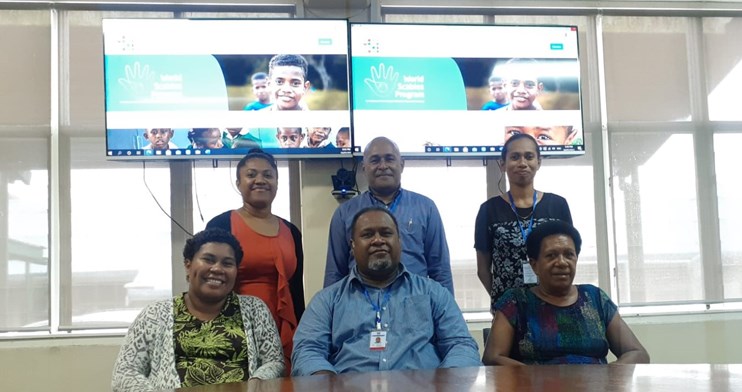
Front left to right - Raijeli Vuniduvu (Divisional Project Officer Northern), Aminiasi Tavui (Fiji Program Manager) and Sr Rosa Varanisese (Divisional Project Officer Western)
Back right to left - Kelera Matavesi (Project Assistant), Aminiasi Koroi (Research Officer) and Mareta Vuki (Divisional Project Officer Central/Eastern)
Our work
Integrated MDA for Scabies and Lymphatic Filariasis in the Eastern Division
The MDA has started in Fiji with the Eastern Division. The scabies program is integrating with the Lymphatic Filariasis Unit to administer triple therapy to address both diseases.
The East division is the largest by area (including the sea). The MDA teams will be travelling long distances in mainly boats in order to reach remote areas and islands to undertake the MDA.
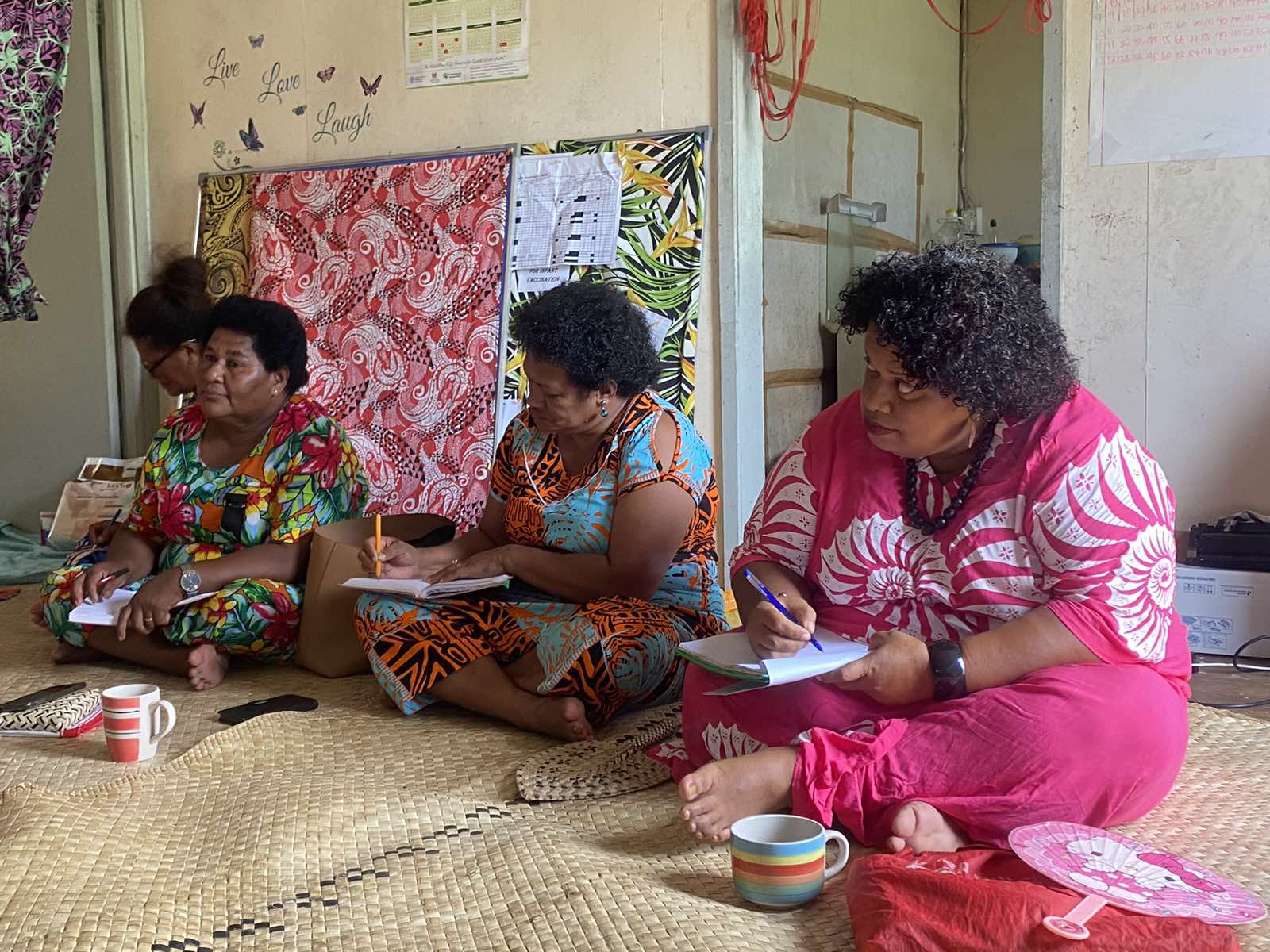
MDA Training in the Eastern Division of Fiji, 2023
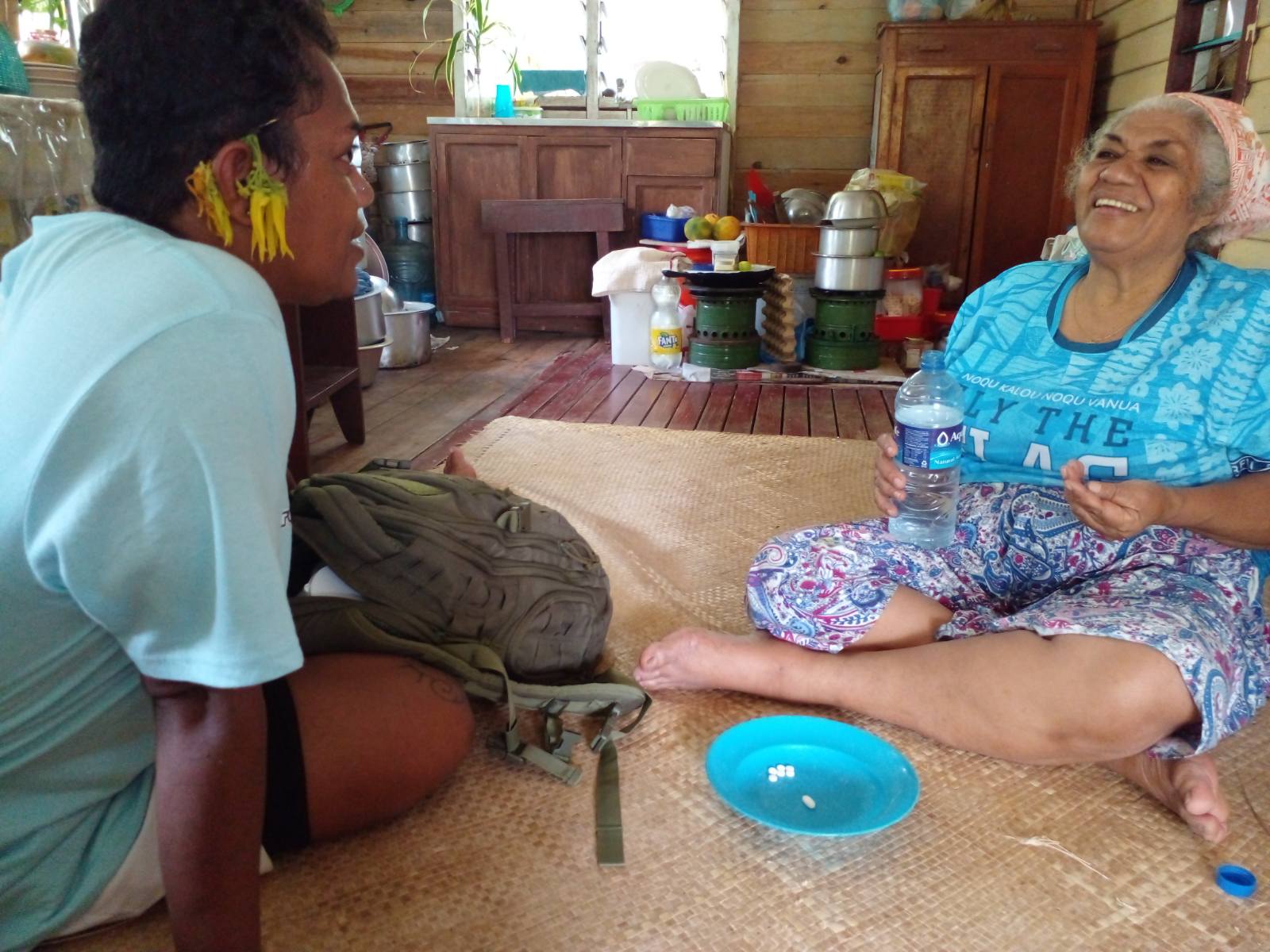
The Eastern Division Rotuma Health Team undertaking MDA, 2023
The Integrated Scabies and LF MDA has been completed in the Northern Division of Fiji.
The WSP team in the North of Fiji have worked in partnership with the Lymphatic Filariasis team at the Ministry of Health and Medical Services to ensure every community in the Northern Division has happy skin, free of scabies.
The teams completed the last day of MDA in the in February, 2023 and were able to come together to celebrate their success.
Over 100 nurses and 300 community health workers were involved with rolling out the MDA to the 130,000 people living in the Northern Division.
WSP would like to express a big thanks to every person involved in the MDA and for making sure Fiji has a healthy community.
The MDA teams also worked hard to collect the remaining MDA materials and supplies from all areas in the North to send back to the headquarters in Suva, Fiji. The remaining supplies have been redistributed to complete the MDA in other Divisions in Fiji.
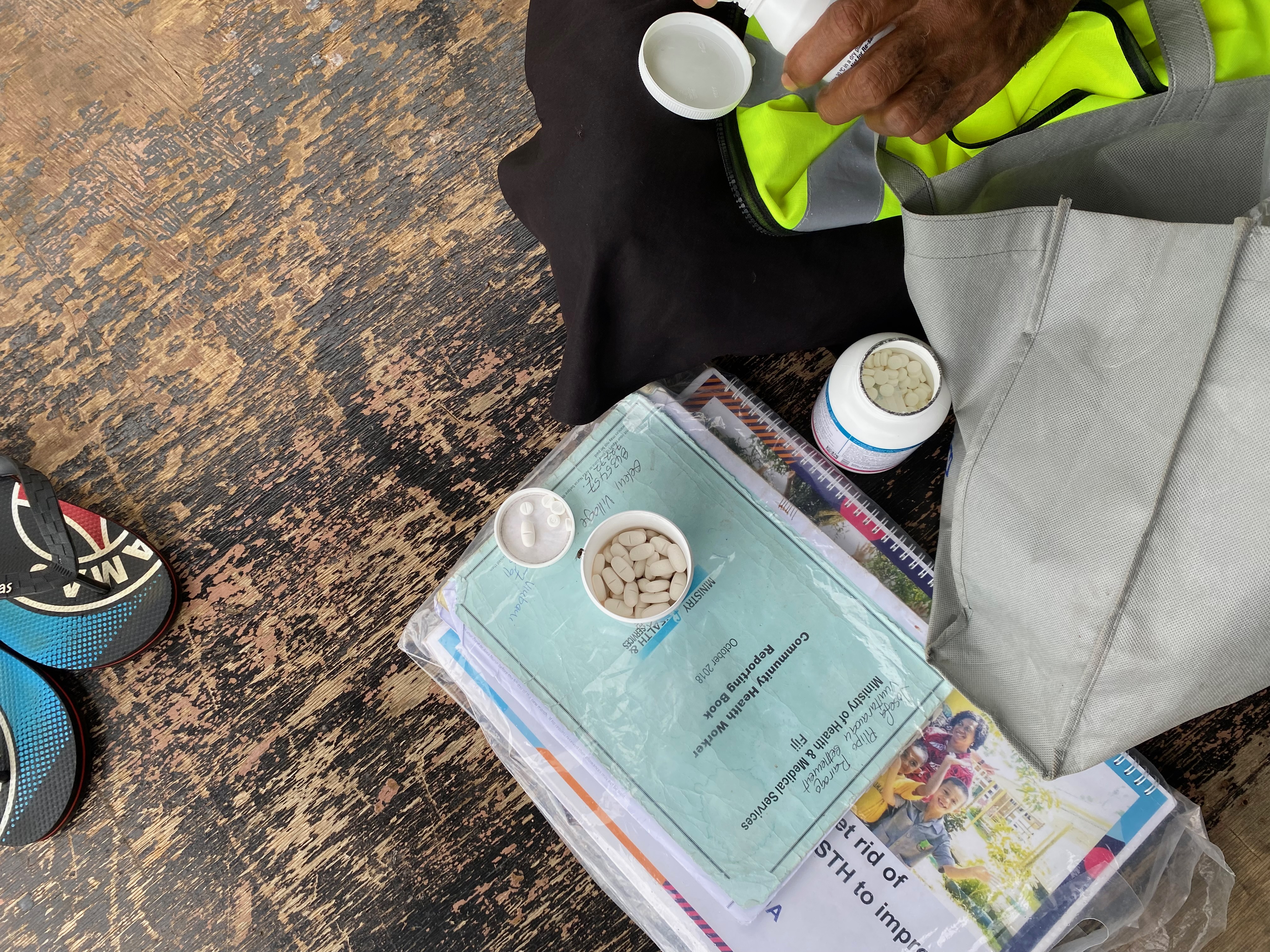
Medicines being dispensed, WSP 2022
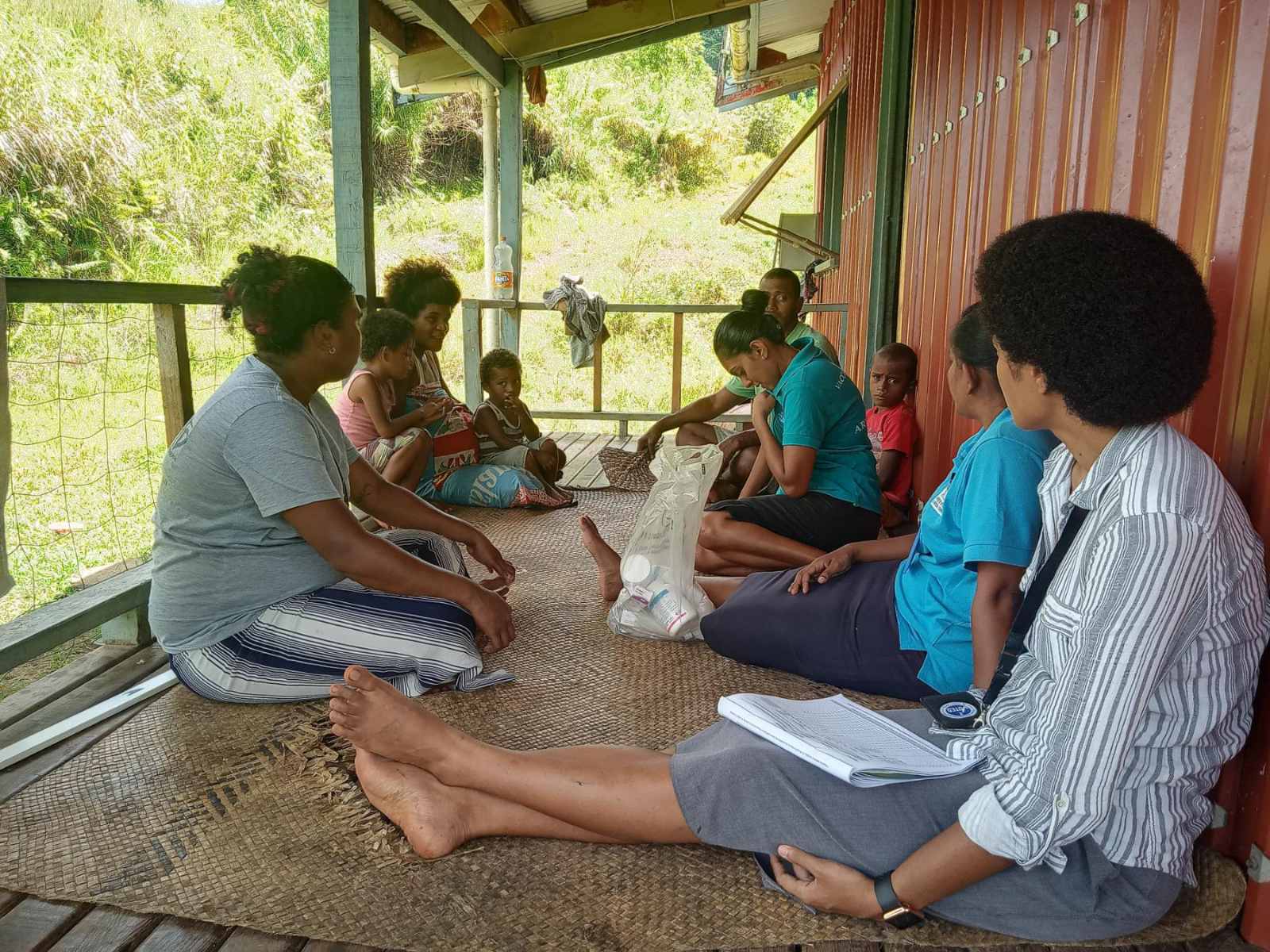
The team in Labasa undertaking MDA, Northern Division
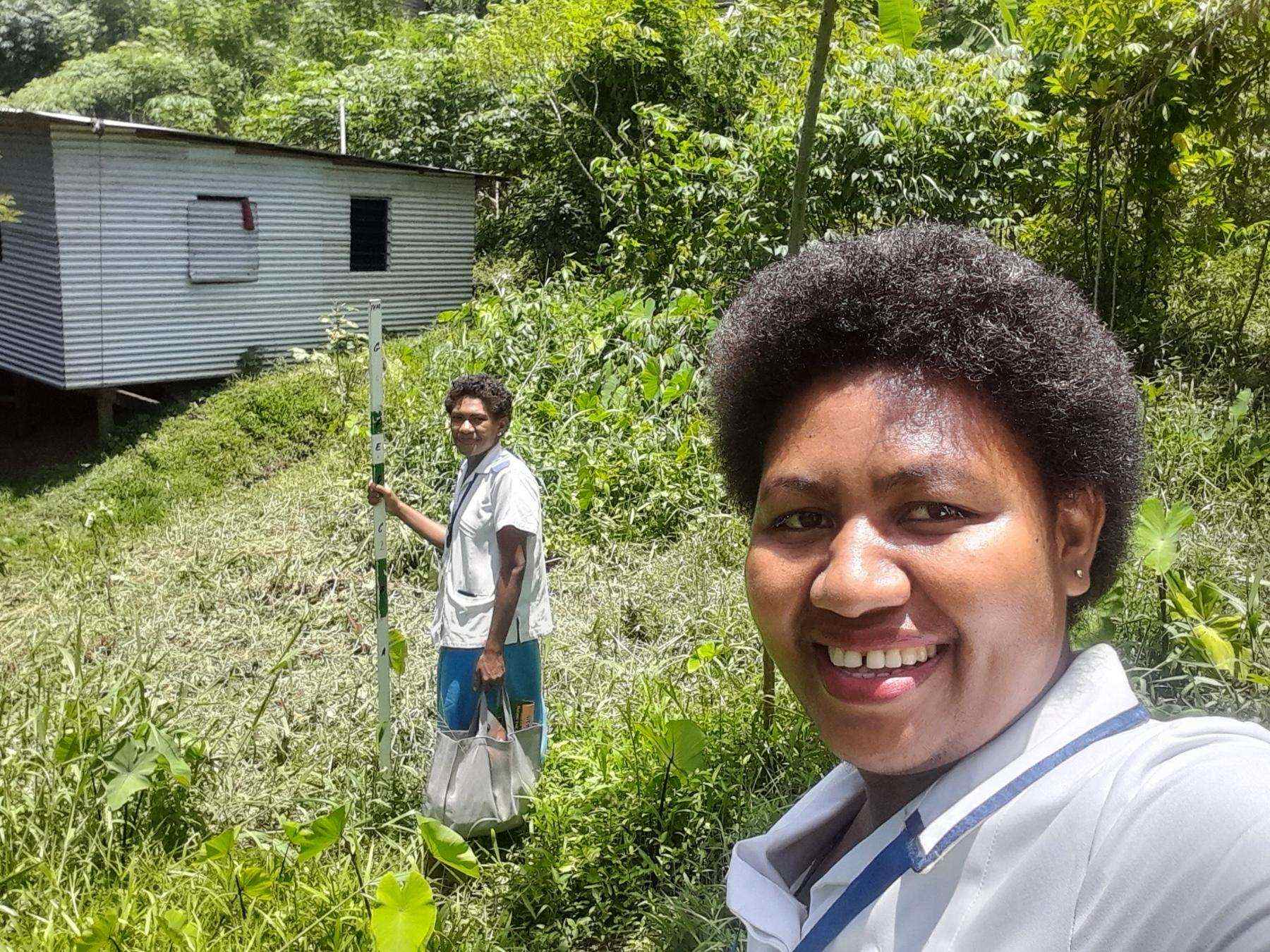
MDA nurses walking house to house to complete the MDA, Northern Division 2022
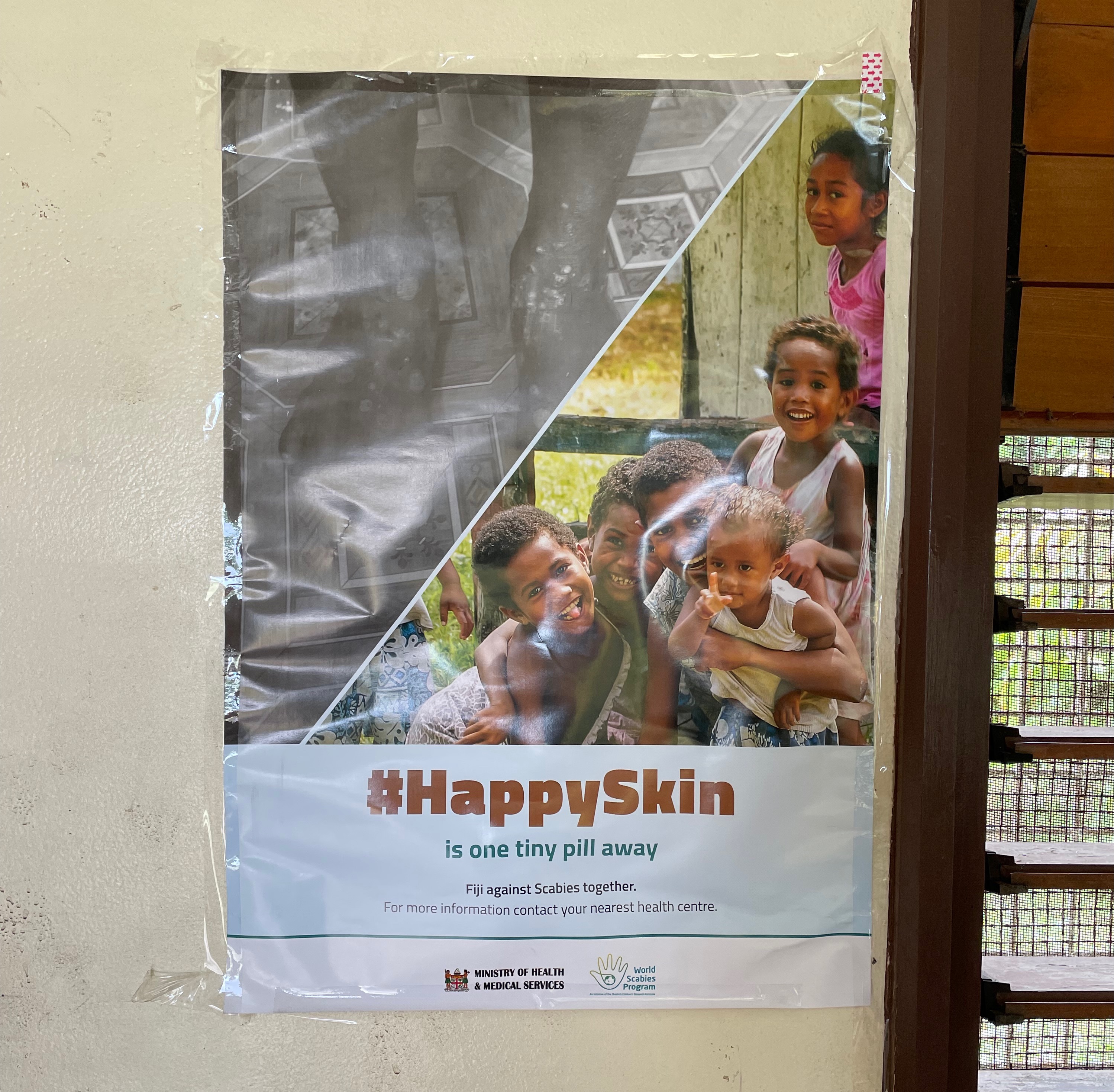
Scabies MDA poster in a health centre in the North
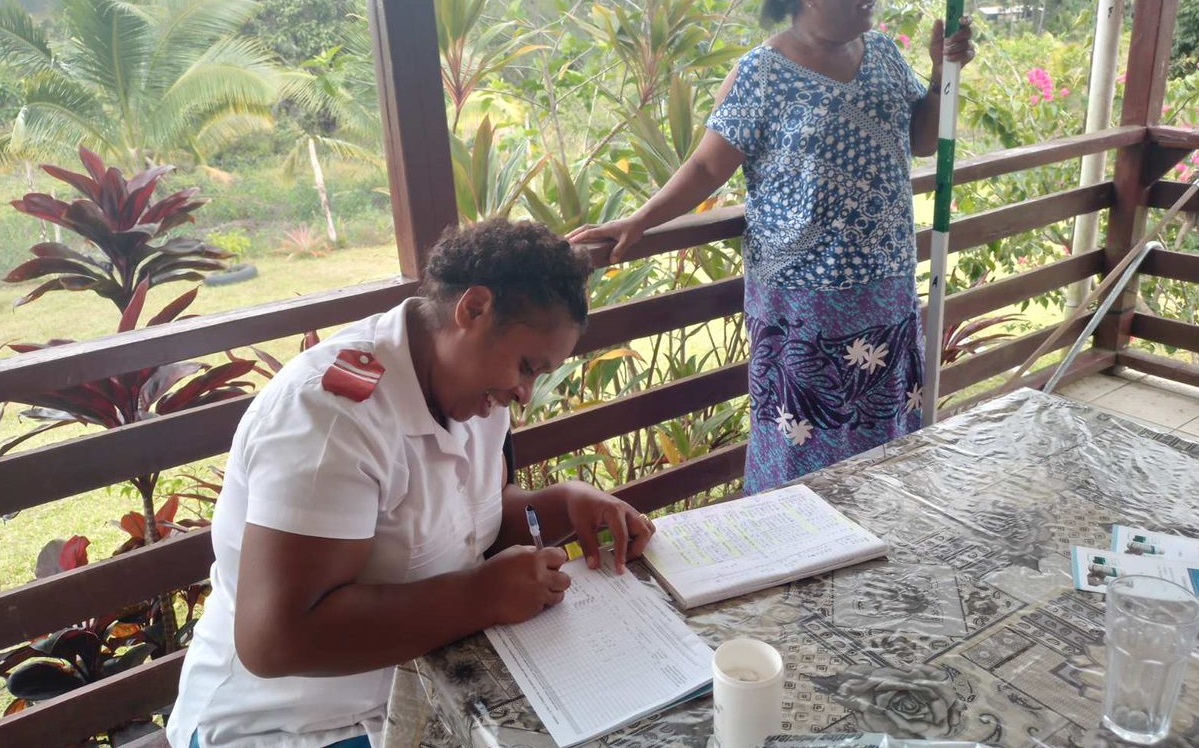
A nurse completing the MDA register form, Northern Division 2022
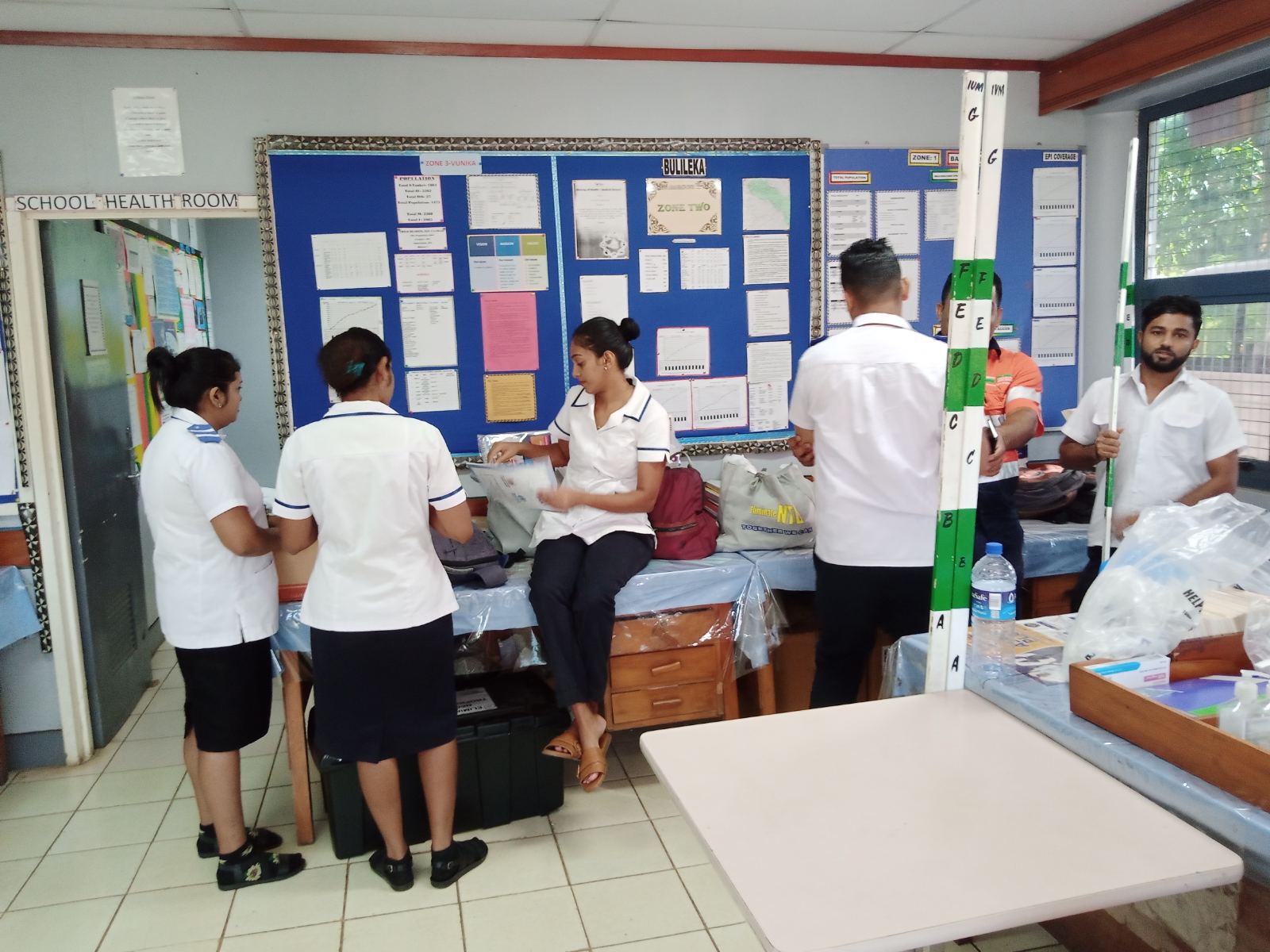
A typical morning before the nurses head out to the communities to undertake MDA in the Northern Division of Fiji
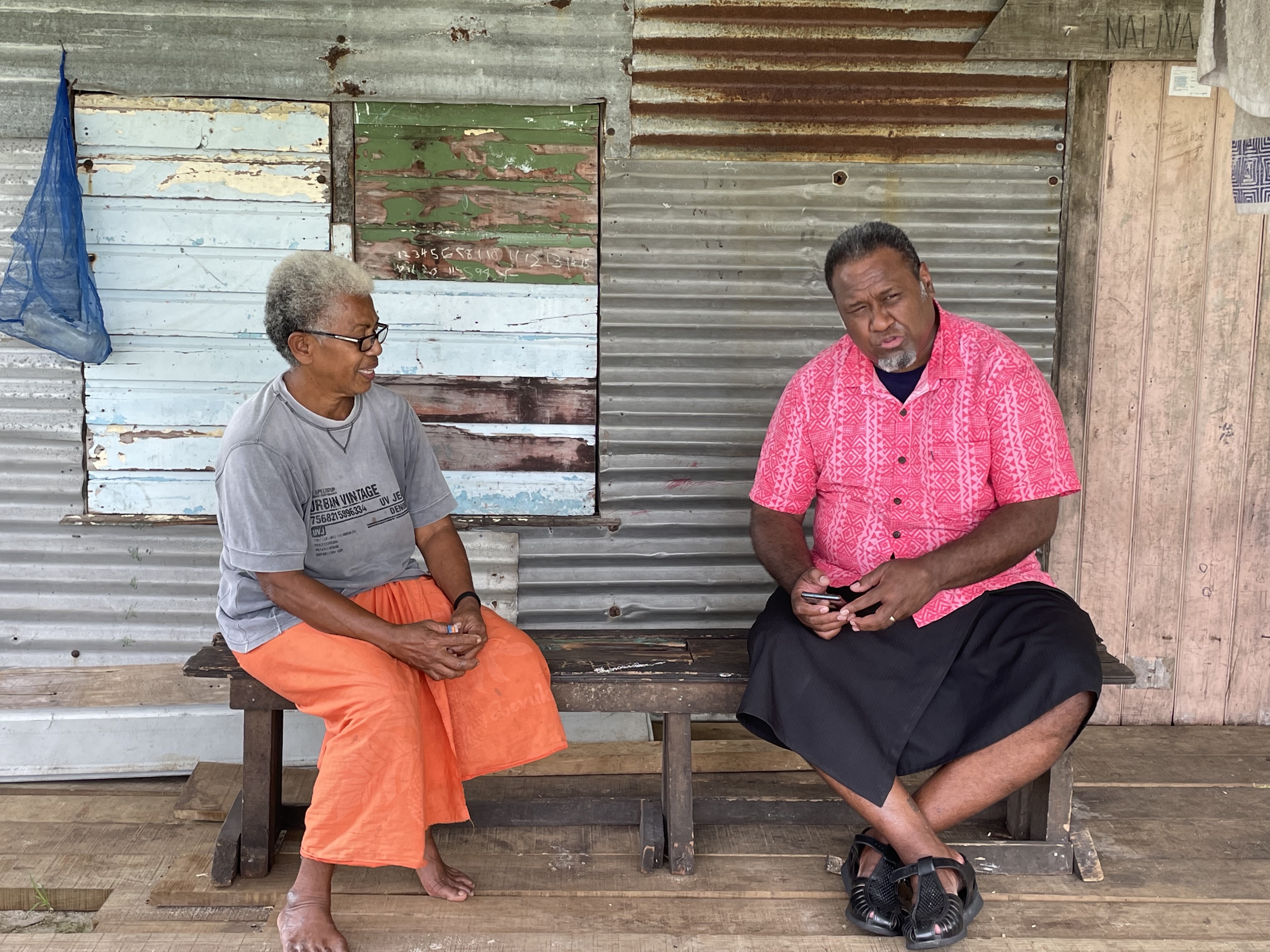
Staff discussing the MDA outside a home, WSP 2022
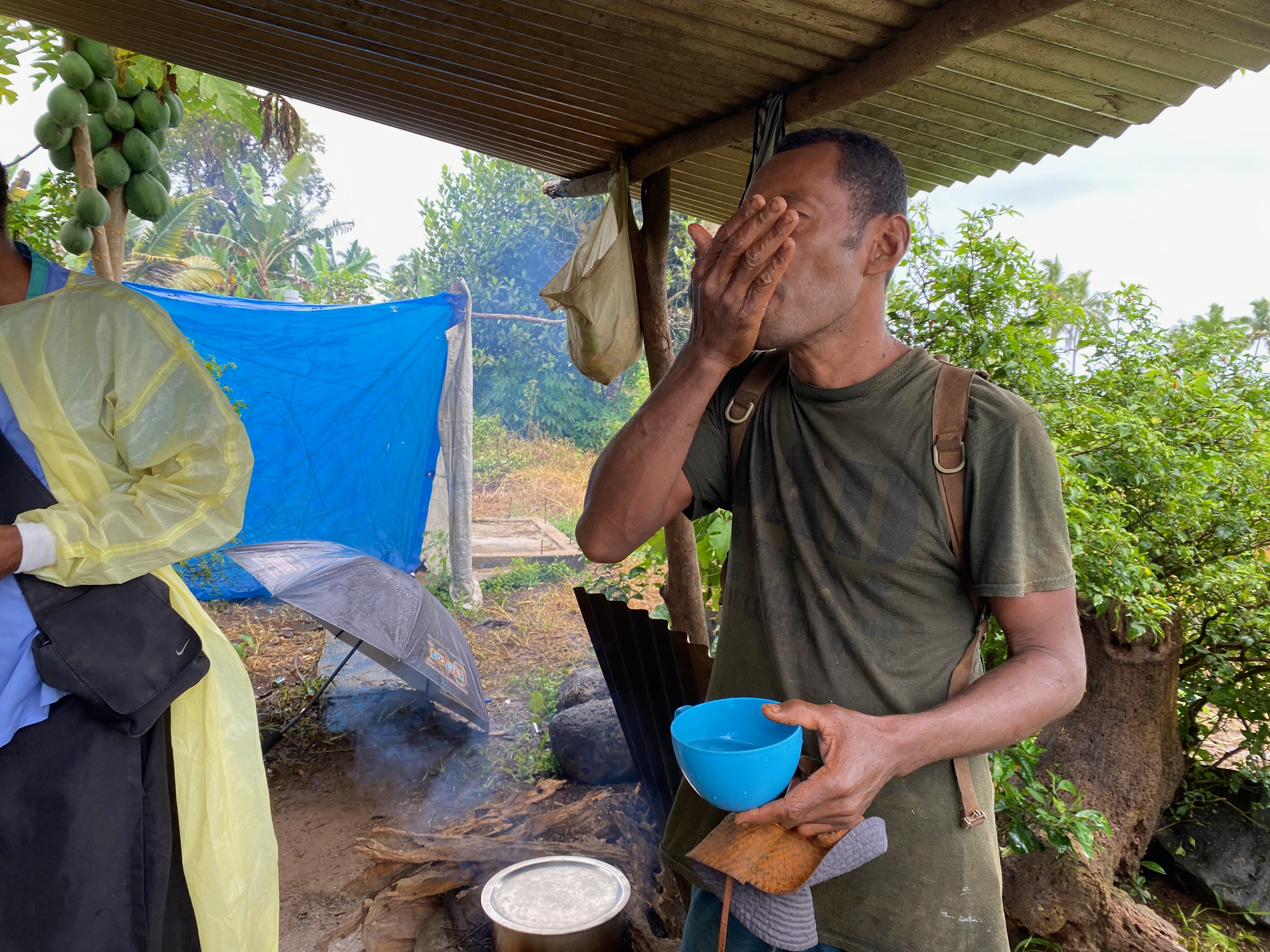
Man drinking the tablets during the MDA, WSP 2022
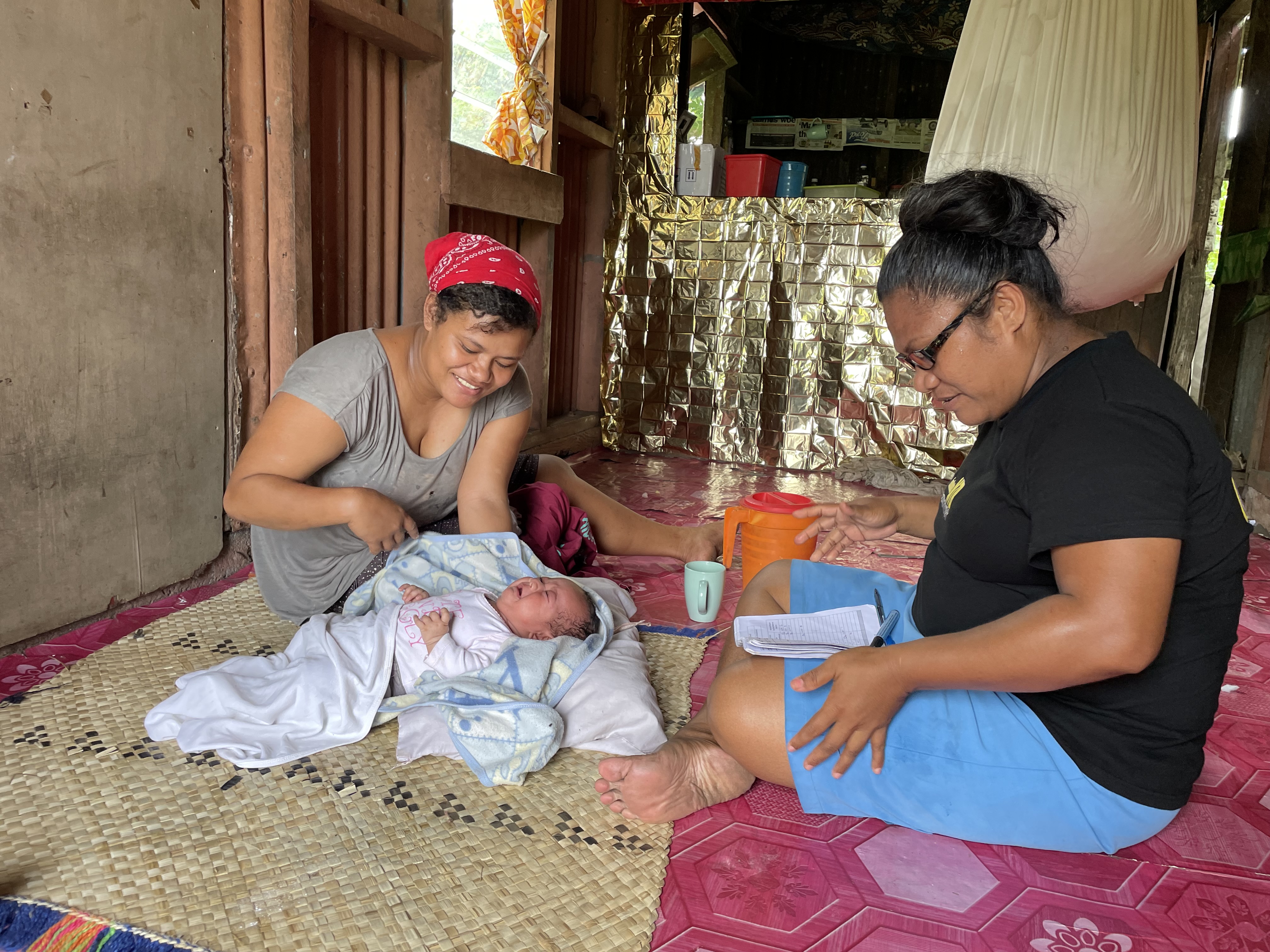
Administering medicines during MDA, WSP 2022
Fiji Baseline Prevalence Survey
The national baseline prevalence survey was conducted in the Western, Central and Eastern divisions of Fiji from November 2021 to March 2022. Skin examiners were trained to identify suspected scabies-like lesions and impetigo in typical exposed sites on the body. Each team included a skin examiner (nurse), a data officer and a driver. 30 villages were randomly selected in the Western and Central Divisions and ten villages in the Eastern Division, which has a much smaller population. In each village 25 households were randomly selected and all households members were invited to participate in the survey. The survey teams crossed flooded rivers, took long boat rides and tolerated hot conditions to reach households in remote villages and urban areas alike to conduct skin examinations. Many of the communities warmly welcomed the WSP survey teams into their households.
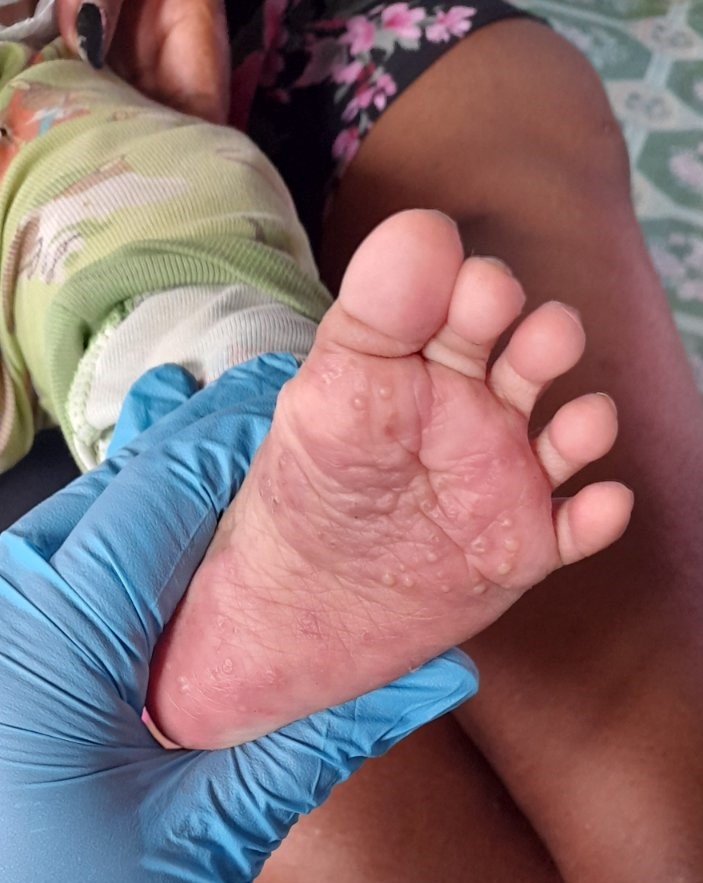
A 6 month old baby found with scabies by a survey skin examiner in the Western Division of Fiji, 2021 World Scabies Program
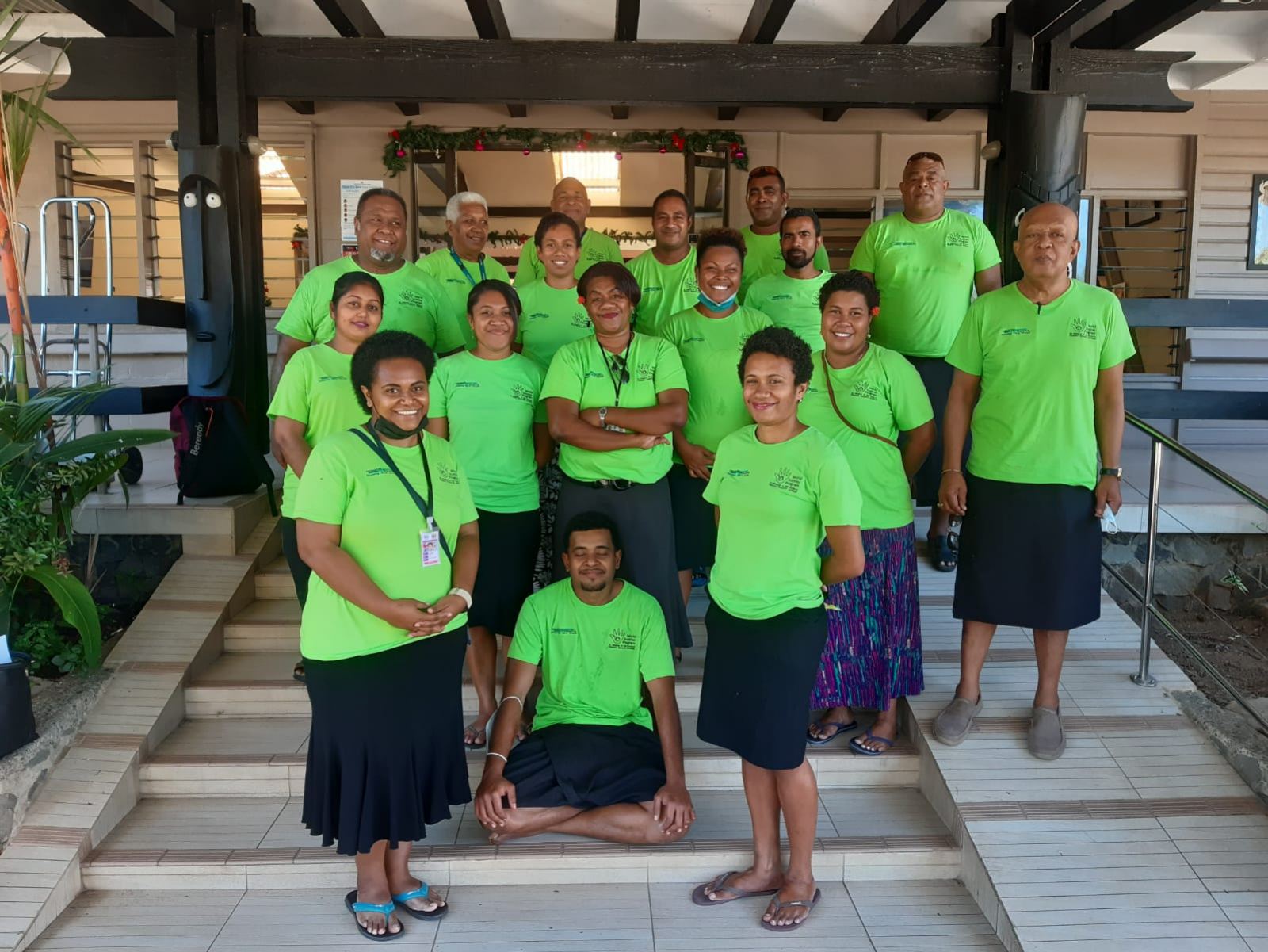
The Prevalence Survey Team, Fiji 2022
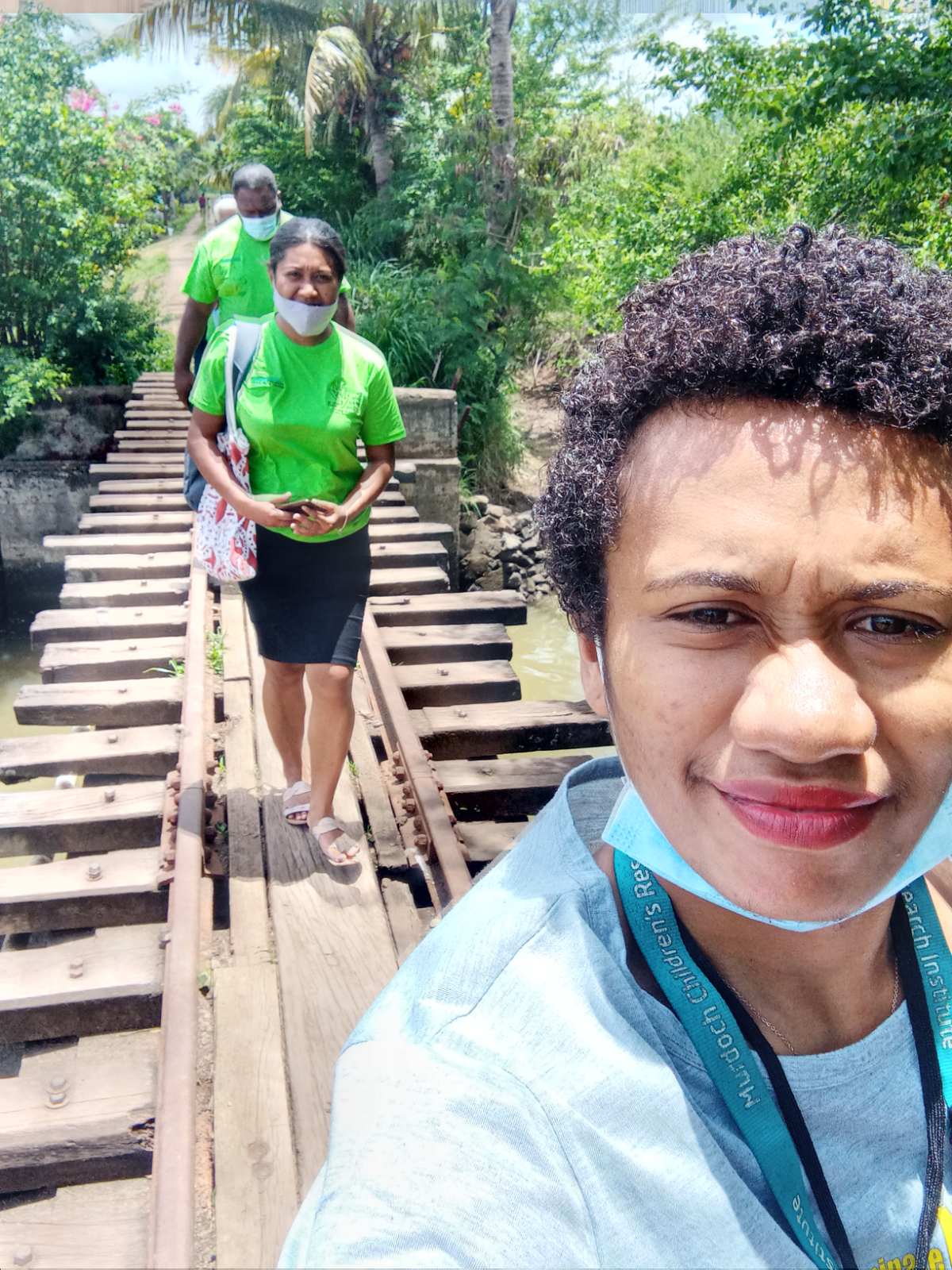
The Fiji survey team in the Ba Subdivision walking to a settlement located near a mangrove and swampy area, 2021 World Scabies Program
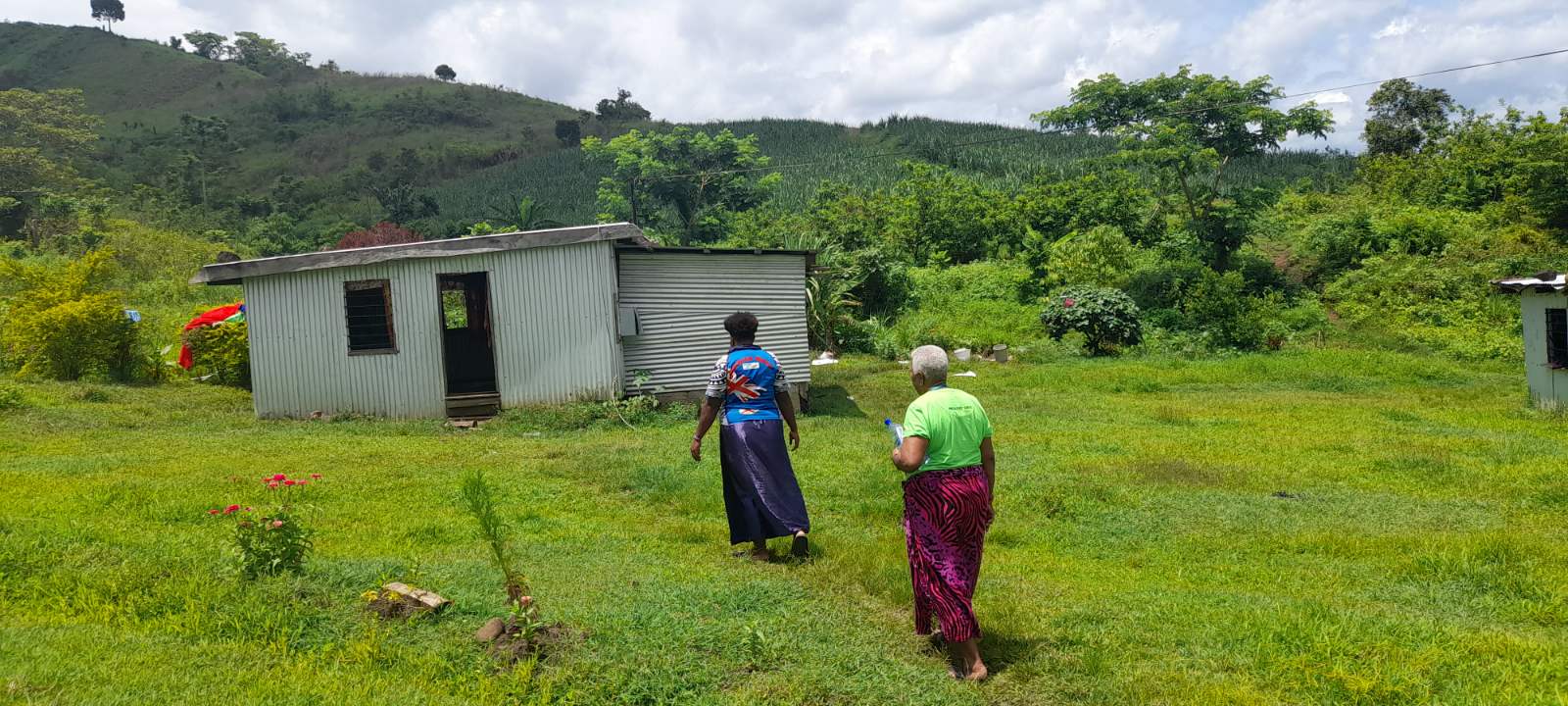
A scabies survey skin examiner visiting a household in the Western Division of Fiji, 2021 World Scabies Program
The BIG SHIFT study in Fiji finds ivermectin reduces the incidence of bacterial complications of scabies
A 2019 study known as The Big Skin Health Intervention Fiji Trial (Big SHIFT) found that ivermectin-based mass drug administration can not only reduce scabies and impetigo but also reduce serious bacterial complications. The study was a before-after intervention trial of ivermectin-based mass drug administration delivered to the whole population of the Northern Division of Fiji.
The research found the incidence of hospitalisations with skin and soft tissue infections was 17% lower after the intervention compared to baseline. The researchers stated the findings represent a big step forward in scabies control and would help inform international policymakers on their scabies control strategy.
As the world’s first study explicitly designed to investigate how ivermectin impacts on bacterial conditions associated with scabies, the findings provide key information to policymakers, including the World Health Organization who have identified scabies control with ivermectin as a high research priority.
Overall, the researchers have stated the findings represent a big step forward in scabies control and would help inform international policymakers on their scabies control strategy.
The study was recently published in The Lancet Regional Health Western Pacific. It is open access and can be found here: https://doi.org/10.1016/j.lanwpc.2022.100433
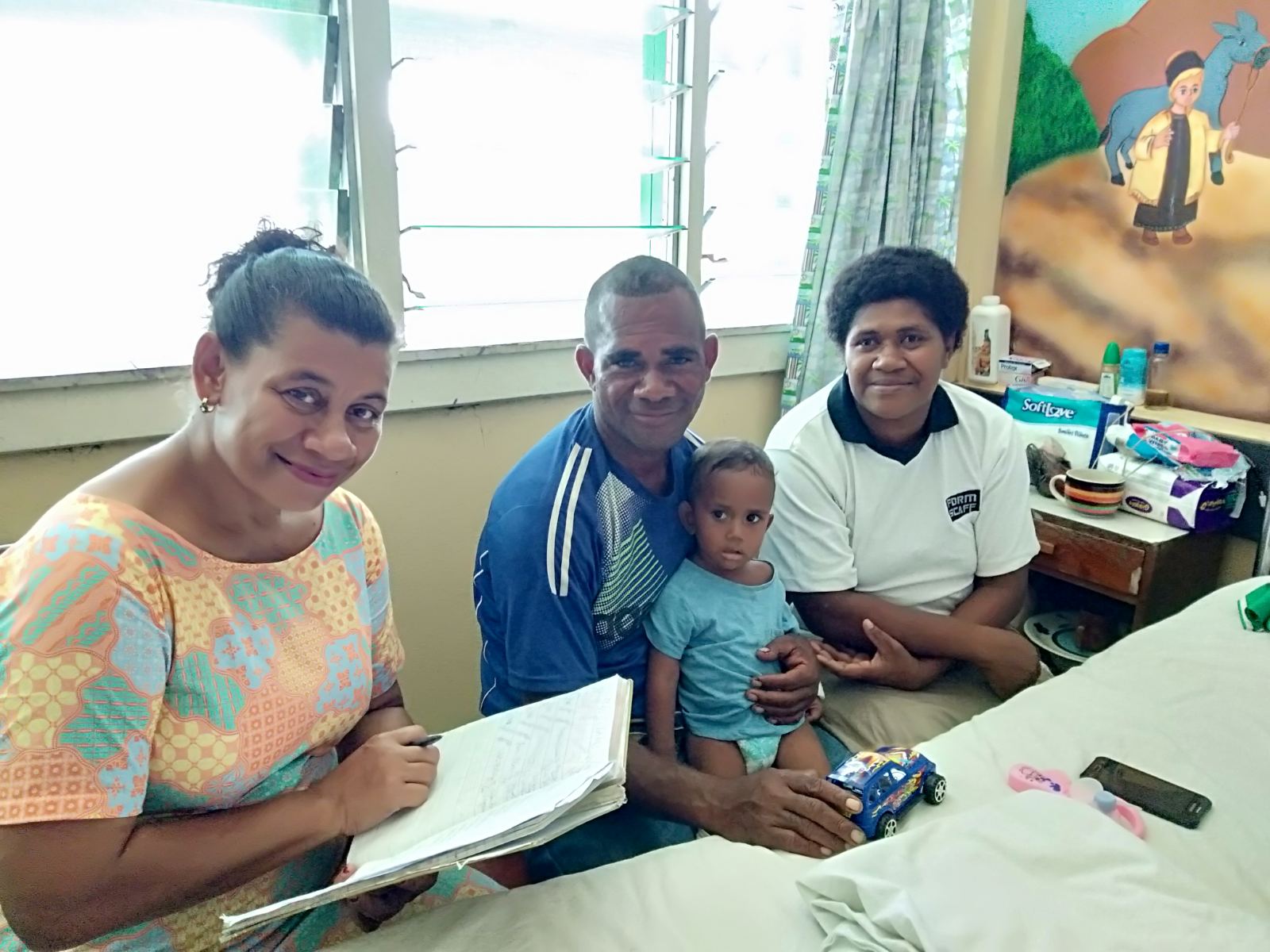
BIG SHIFT survey team undertaking the study





